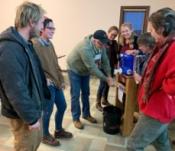 2024 Evaluation Report
2024 Evaluation Report
The Center was evaluated in 2024 using five evaluation methods. The following are highlights of the evaluation results, organized by three questions:
- What is going well with the NCR FSMA 3.0?
- What impacts has the NCR FSMA had?
- What more could the NCR FSMA do?
Read the 2024 Evaluation Report to learn more about the evaluation methods and the answers to these questions.
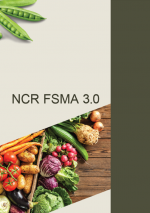 NCR FSMA 3.0 Reporting Book
NCR FSMA 3.0 Reporting Book
This NCR FSMA 3.0 Reporting Booklet shares the highlights of our most current round of funding, 2021-2024.
During this grant cycle, the NCR has worked with 237 partners.
This document also includes the new resources we've developed, special events we've hosted, and cooperative evaluation projects.
Check out the good work that has been accomplished!
2023 Evaluation and Impact Reports

Learn more about the impacts the NCR FSMA has had in the past year in this Impact Report. The Evaluation Report includes the results of the assessments that the NCR FSMA utilized in 2023.
The Center's evaluator used six assessment methods for the report.
1) PSA post-course evaluations
2) PSA participant follow-up survey
3) annual conference survey
4) fall professional development event survey
5) partner interviews
6) participant observations
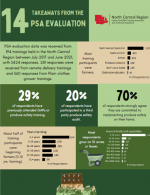 Produce Safety Alliance course evaluations
Produce Safety Alliance course evaluations
With the permission of the lead trainer, the Produce Safety Alliance shared the results of the course evaluations with the NCR FSMA. Arlene Enderton put together 14 takeaways from that data. Read the regional report or contact your state lead for your local report.
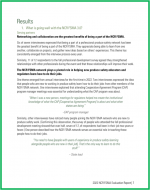 2022 Evaluation and Impact Reports
2022 Evaluation and Impact Reports
These documents share the impacts of the NCR FSMA based on its evaluation in 2022. Throughout the life of the NCR FSMA, evaluation has been used to measure its impact and receive continuous feedback to improve its work. This Evaluation Report shares evaluation results from each assessment the NCR FSMA evaluator worked on in 2022. The shorter, Impact Report shares the highlights of the Center over the past year.
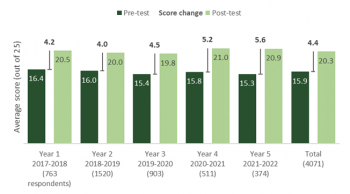 2021-2022 PSA Grower Training Knowledge Assessment
2021-2022 PSA Grower Training Knowledge Assessment
These trainings have been evaluated for five years with a knowledge assessment, a 25-question quiz administered to participants before and after the training to measure knowledge change. This report shares the results from 272 trainings held over the course of five years. 4,071 complete responses were received. Across the five years, respondents scored an average of 15.9 points out of 25 on the pretest and 20.3 points on the post-test. Participants in remote delivery trainings learned more and scored higher on the post-test than participants in face-to-face trainings.
 2022 PSA Grower Training Follow-Up Survey
2022 PSA Grower Training Follow-Up Survey
The impact of Produce Safety Alliance Grower Trainings in twelve North Central Region states was evaluated in five consecutive years. Training participants were invited to take the survey approximately one year after the training. This report shares cumulative results. You can also read the Executive Summary. 76% of growers who responded to the survey improved food safety practice, infrastructure, or equipment since the training.
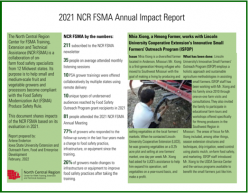 2021 Evaluation and Impact Reports
2021 Evaluation and Impact Reports
These documents share the impacts of the NCR FSMA based on its evaluation in 2021. Throughout the life of the NCR FSMA, evaluation has been used to measure its impact and receive continuous feedback to improve its work. This report shares evaluation results related to each objective of the NCR FSMA 2.0 in 2021. The shorter, impact report shares the highlights of the Center over the past year.
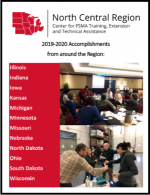 2020 Reporting Book
2020 Reporting Book
Find out what's been happening in all twelve states in the 2020 reporting book. Each page highlights key accomplishments in a state and includes one of our success stories. NCR partners have been busy!
You can also find evaluation data at the end of the report and lots of pictures of our gatherings.
Read the reporting book.
Success Stories
As part of the National Collaborative initiative, NCR FSMA is tasked with developing national success stories related to FSMA in partnership with the Lead Regional Center and the Northeast Regional Center. Regardless of where you are in the country, we are seeking your help to develop these success stories.
 |
Collaborating Between States- the Produce Safety Risk Assessment Tool Michigan's Produce Safety Risk Assessment (PSRA) has been recognized as a powerful tool to drive voluntary compliance with State and Federal laws. A group of outreach professionals, the Innovative Small Farms Outreach Program (ISFOP) at Lincoln University, is adopting the PSRA as part of their outreach efforts. To better orient them to the tool, Michigan State University conducted a one-day training with ISFOP staff. It was well received. |
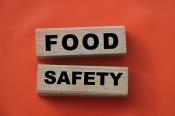 |
The Missouri Food Safety Task Force Hosts an Annual Food Safety Conference The majority of participants were food inspectors and they are very eager to learn more to provide help to their clients. The audiences expressed their tremendous appreciation for this opportunity as they otherwise would not be able to attend these classes, and they stated that this will greatly improve their ability to help the clients they serve. |
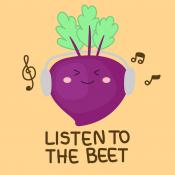 |
Virtual Meetings Create Connections for State EmployeesAt the 2019 NCR FSMA annual conference, state regulators met as a group. They decided it would be helpful to continue the conversation through monthly video calls. A few months later, the state employees responsible for their states’ inventories decided meetings would be helpful for their roles as well. The Missouri Department of Agriculture's Ben Marshall shared about the calls through a song parody. |
 |
New Farm Owners Invite Educators and Regulators to Their FarmDrew McCulley and his wife Stephanie had both worked in agriculture in their hometown in Indiana. The two of them had an opportunity to buy an existing farm, with all the ground, equipment, and even a home. Along with Stephanie’s mother, Janie Shriver, they bought the whole operation and renamed it Valhalla Farms. |
 |
Iowa State University staff collaborate to offer training that impacts people around the worldA unique partnership between Iowa State University’s CIRAS and the Extension and Outreach Iowa Grain Quality Initiative (IGQI) equips university staff to work with food and feed manufacturers from Iowa and across the world. |
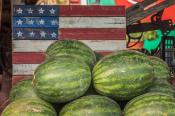 |
Purdue University Works with Military Veteran FarmersMost military veteran farmers engage in small-scale farming. Like other small-scale farmers, they face challenges balancing making profits and complying with food safety regulatory requirements. |
 |
Designing a temporary pack shed structureMany farmers have asked Iowa Valley RC&D for guidance on how to set up a low cost, food safe, GAP certifiable, and efficient space for washing and packing produce. With funds from the North Central Region Center for FSMA Training, Iowa Valley designed and constructed a temporary pack shed structure and created an instructional building guide to enable anyone to construct the pack shed on their own. |
 |
Food Safety Bites: A food safety-focused podcast seriesThe topic of food safety can be daunting for many vegetable farmers. To address this need, UW-Madison Extension and Outreach specialists Erin Silva and Harriet Behar, in partnership with Annalisa Hultberg (University of Minnesota), developed a series of 10 to 15-minute-long podcasts that create a platform for farmers to access this information in a consistent, accessible format. |
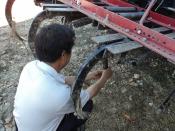 |
Nhia Xiong, a Hmong Farmer, works with Lincoln University Cooperative Extension's Innovative Small Farmers’ Outreach Program (ISFOP)When Mr. Xiong asked for LUCE’s assistance, he was growing vegetables on a 0.25-acre plot and selling at one farmers’ market one day a week. His goals were to expand his operation, sell vegetables on a year-round basis, and make a profit. |
 |
Water Quality and the FSMA PSR: Developing Risk Assessment and Educational Tools for Farmers and Laboratories in the Upper MidwestThe University of Minnesota and Michigan State University, in partnership with the Produce Safety Alliance, are leading a 3-year USDA NIFA FSOP project to help water analysis laboratories and producers better understand the not-yet-finalized agricultural water requirements under FSMA PSR subpart E, and to reduce on-farm risk associated with agricultural water use. |
 |
Missouri growers benefits from University of Missouri Extension programmingMatthew Brubaker includes working with staff from University of Missouri Extension and the Missouri Department of Agriculture, and attending a PSA grower training as key elements of produce safety on his farm. |
 |
Pilot Hmong-language bi-lingual PSA grower training in MinnesotaThe Produce Safety Alliance (PSA), University of Minnesota Extension, Minnesota Department of Agriculture Produce Safety Program, and the Hmong American Farmers Association (HAFA) recently collaborated to offer the nation’s first alternate language training that met the regulatory requirement of § 112.22(c) for covered farms. |
 |
Cheney Lake Produce Benefits from a Team Approach to Grower EducationJohn Miller, his wife, Freida, and their five children have operated Cheney Lake Produce for 12 years. They have worked with K-State Research and Extension and the Kansas Department of Agriculture to make decisions that help them provide high quality produce to their community. |
 |
NCR FSMA partners draw upon their network to move trainings to remote delivery during COVID-19 pandemicProduce Safety Alliance Grower Trainings are some of the many events that the coronavirus pandemic has affected. When it became clear that in-person trainings couldn’t safely be held for many weeks, the PSA staff decided to temporarily allow remote delivery of the grower training. |
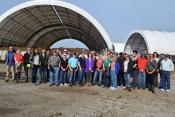 |
Biological Soil Amendments of Animal Origin ConferenceThe FDA Produce Safety Network collaborated with the NCR FSMA Center and Iowa State University Extension and Outreach to develop a 1.5 day conference and tour in Iowa to discuss biological soil amendments of animal origin. |
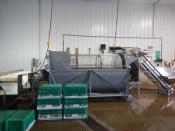 |
Farmer finds DATCP inspectors to be helpful partners in meeting FSMA requirementsHarmony Valley Farm (HVF) is a 120-acre farm in Wisconsin that sells certified organic vegetables. They recently hosted the Wisconsin Produce Safety Advisory Council. |
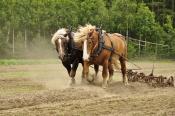 |
Mennonite vegetable farmer serves as liaison between Plain community growers and state and federal agenciesLaVern Zeiset, who grows 25 acres of vegetables and has dairy cows, represents Wisconsin on a committee of Plain growers who help the FDA understand their community's unique concerns. |
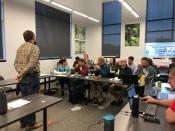 |
Produce Safety Alliance and NCR FSMA Collaborate on Produce SafetyThe Produce Safety Alliance and the North Central Region FSMA Center (NCR FSMA) have a history of complementary efforts to help coordinate activities and strengthen produce safety outreach programs in each state. |
 |
Two States, One MissionDr. Londa Nwadike currently serves as the State Extension Food Safety Specialist for both Kansas State and the University of Missouri.
|
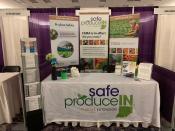 |
Collaboration in Indiana Serves Produce GrowersThe Indiana Department of Agriculture, the Indiana State Department of Health, and Purdue Extension collaborate under the umbrella of Safe Produce Indiana. As JoAnna Beck, a produce safety supervisor with the Department of Health said, this “gives growers a lot of resources and people they can trust and turn to when they have questions.” |
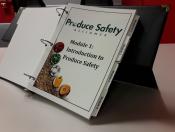 |
Educating Plain GrowersPlain community growers are generally concentrated in small areas. Bringing trainings to their communities can generate large audiences for trainings if an educator has built a relationship with the community. |
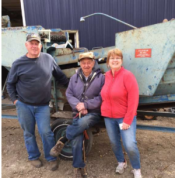 |
Buske and PufferFarmers are learning that the new Food Safety Modernization Act (FSMA) Produce Safety Rule is not a burden, as they expected. Mike Buske has been growing vegetables commercially for nearly 20 years. While he admits that the idea of the government regulations could take the fun out of farming, so far FSMA has not been a burden. “As long as they keep the rules reasonable, it shouldn’t cost much more than what we’re doing,” he said. |
|
|
Farmers as TrainersIn the State of Minnesota, farmers are trainers for Produce Safety Alliance Growers Training. Some fruit and vegetable growers are required to take this course to comply with the Food Safety Modernization Act, but most of them are not required to take the course. |
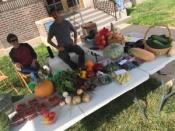 |
Brooks and MaiJamerson held a review at their farm, and a few other farmers attended as well. As a result, Brooks and Mai immediately made some changes to improve their food safety practices. “I stopped washing my greens,” says Brooks. Previously, they had washed salad greens and spinach in a bin of water and then spun them dry. During the on-farm review, they learned that washing their greens using the same tub of water can spread contamination. Jamerson suggested that they sell their greens unwashed, if possible, or rinse them over a grate. In this way, water washes through, so that if something is contaminated it does not contaminate the whole bin. |
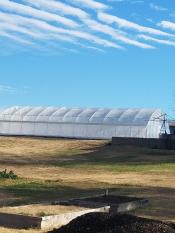 |
Shephard's FarmFor some growers, the Produce Safety Alliance (PSA) Grower Training is their first introduction to the resources that are available to fruit and vegetable growers through Extension. The Food Safety Modernization Act, passed by congress and signed into law by President Obama in 2011, requires produce growers to attend an approved food safety course and the PSA Grower Training is the first approved course. Jim Shephard attended a training offered by the University of Missouri Extension. |
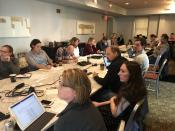 |
Detroit MeetingThe first face-to-face gathering held for partners of the North Central Region Center for FSMA Training, Extension, and Technical Assistance (NCR FSMA) was a grassroots effort organized by two prominent partners: Phil Tocco (Michigan State University Extension) and Don Stoeckel (Produce Safety Alliance). During the summer off-season, new information about the Produce Safety Rule was released, and teams had time to develop new classroom activities to do a better job of educating growers.
|

Any opinions, findings, conclusions, or recommendations expressed in this publication are those of the author(s) and should not be construed to represent any official USDA or U.S. Government determination or policy.
This work is supported by the Food Safety Outreach Program [grant no. 2018-70020-28877; grant no. 2021-70020-35732; and grant no. 2024-70020-42954] from the USDA National Institute of Food and Agriculture.

